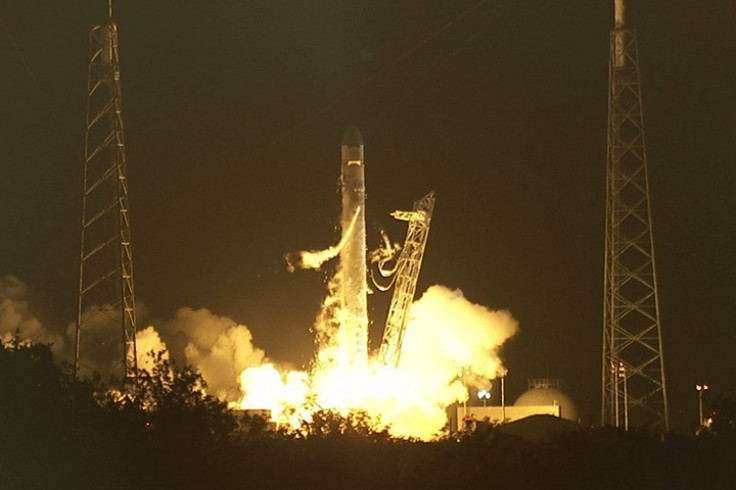Beam Me Up: SpaceX Launches First Commercial ISS Delivery (And Scotty's Ashes) Into Space

SpaceX has successfully launched the first private sector mission to resupply the International Space Station, marking a new era in NASA's space flight program.
The California company's Falcon rocket, topped by an unmanned Dragon freight capsule, lifted off from its Florida pad at 3:44 a.m. EDT on Monday, after an aborted first attempt over the weekend.
SpaceX was forced to abandon the launch of its Dragon space capsule on Saturday because of an engine glitch in the Falcon 9 rocket.
The Dragon capsule, which contains 500 kg of food, water and equipment, will take a couple of days to reach the ISS.
Also on board were the remains of actor James Doohan, who played Scotty on the original Star Trek series, and Mercury astronaut Gordon Cooper.
Over the next two days, the capsule's guidance and control systems will be tested at a safe distance of 2.5 km from the station.
If all goes well, then Dragon will maneuver to within 10 meters of the station, before being grabbed and docked to the ISS by a robotic arm mounted to outside of the facility.
Dragon will be the first commercial delivery to the space station, marking the start of NASA's long-term goal to offload routine missions such as delivery, allowing it to concentrate on more ambitious projects such as going to Mars.
SpaceX is one of the two private firms that received billions in funding from NASA to supply food and equipment stocks to the ISS. The other, Orbital Sciences Corp., plans to start launching vehicles later this year.
In December 2008, NASA announced its plan to make use of SpaceX's Falcon 9 launch vehicle and Dragon spacecraft for resupply missions to the ISS once the space shuttles were retired. According to the SpaceX website, the $1.6 billion contract with NASA represents a minimum of 12 flights, with an option to order additional missions for a cumulative total contract value of up to $3.1 billion.
© Copyright IBTimes 2024. All rights reserved.











